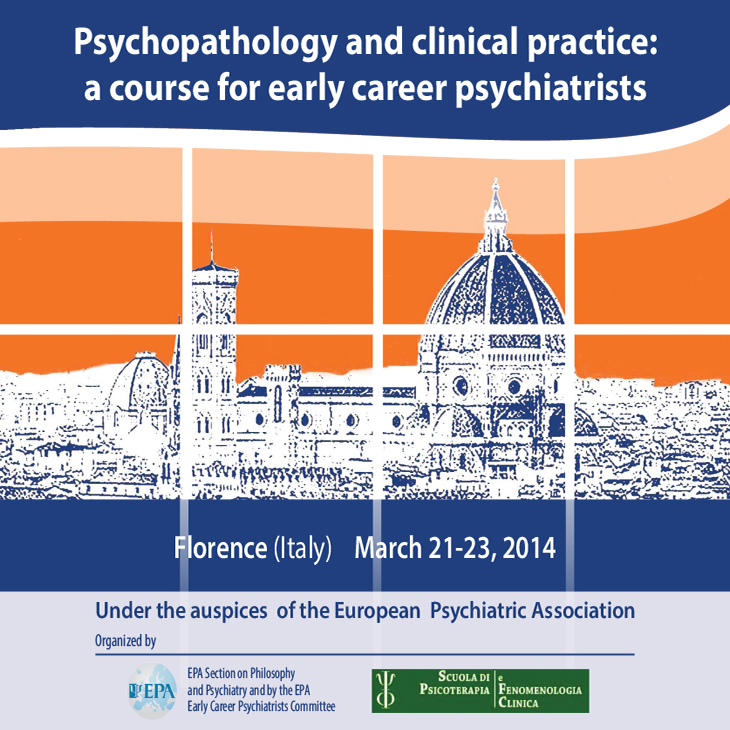Psychopathology and Clinical Practice
Where
Firenze
When
21 Marzo 2014 - 23 Marzo 2014
The aim of this residential course is to take a fresh look at psychopathology and its place in the curriculum of European early career psychiatrists. The programme will combine theoretical, empirical, clinical and therapeutic perspectives.
We assume that the relevance of psychopathology for psychiatry is threefold:
- + it is the common language that allows psychiatrists to understand each other while talking about patients
- + it is the ground for classification and diagnosis
- + it makes an indispensable contribution to understanding patients’ personal experiences
For each of these aims, there is a corresponding specialty or sub-area of psychopathology: descriptive psychopathology, the main purpose of which is to systematically study conscious experiences, order and classify them,and create valid and reliable terminology.
Clinical psychopathology, which is a pragmatic tool to bridge relevant symptoms to diagnostic categories,and thus restricting the scope of the clinical investigation to those symptoms that are useful to establish a reliable diagnosis. Structural psychopathology,which looks for a global level of intelligibility, assuming that the manifold of phenomena of a given mental disorder are a meaningful, interconnected whole and not just an aggregation of independent symptoms.
We will specifically develop these issues in the area of major psychoses,including manic-depressive disorder and schizophrenias, with a special focus on two questions:
- + How to assess mental phenomena?
- + How to write a clinical file
The aim of this residential course is to take a fresh look at psychopathology and its place in the curriculum of European early career psychiatrists. The programme will combine theoretical, empirical, clinical and therapeutic perspectives. We assume that the relevance of psychopathology for psychiatry is threefold: + it is the common language that allows psychiatrists…


